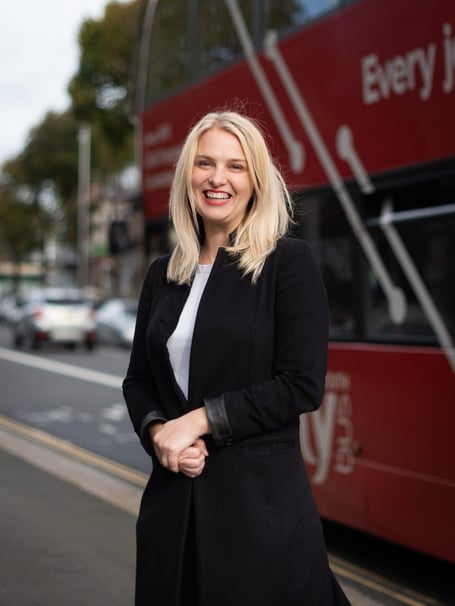Plymouth is in danger of locking out 50 per cent of its population from the 25,000 high-quality jobs coming to the city by 2035 unless more girls are encouraged into science, engineering and technology, a city councillor has warned.
Huge investments in defence, and Plymouth’s growing reputation as a centre of excellence for marine autonomy, are creating “amazing” opportunities for young people. But these industries remain heavily male-dominated.
Cllr Charlotte Holloway (Lab, Drake), vice chair of Plymouth City Council’s natural infrastructure and growth scrutiny panel, said she was put off engineering as a teenager after feeling like she didn’t fit in during work experience — simply because she was female. Now, she is on a mission to get the balance right.
She said hundreds of people attended the recent launch of the National Centre of Marine Autonomy in the city, but she was shocked to see only two women at the event.
Babcock, which owns Devonport Dockyard, is aiming to increase its female workforce to 30 per cent by 2030, following a recent rise. At board and senior leadership level, female representation is already stronger.
Over the next decade, the company plans to recruit 5,500 new employees as part of a £4.4 billion government investment in nuclear submarine construction.
“We are making some progress, and we should applaud Babcock for having moved the dial on female representation,” said Cllr Holloway. “But we really need intervention at scale.”
She said encouraging girls to take an interest in STEM subjects must start in primary schools.
“Some of this is cultural; it’s about the education system. We see far too much of a drop-off in girls studying STEM subjects in school. We need to show them that not only are these fun, exciting subjects, but they lead to very practical, real-world, hands-on experience and to jobs with very human elements to them.”
Cllr Holloway is also working to persuade students who left Plymouth for study or work to return and take up the roles now becoming available.
“I have this mantra: you should not have to leave a place you love for a job you love. We need to instil that mindset, so you can have both.”
She added that pay inequality remained a challenge. A recent report showed half of women in Plymouth earn less than the real living wage, compared to one in five men. The council is working with local businesses and women’s organisations to address the imbalance.
Discussions are ongoing around improving work accessibility, tackling low wages and discrimination, and encouraging flexible working practices.
“There is a lot of goodwill in the city to get all this right,” Cllr Holloway said. “We want those children who are six, ten or 15 today to grow up saying they aspire to jobs in marine autonomy, or at an ocean AI company, or a high-quality job at Babcock and to have that ambition, knowing those roles exist and that they’ll be supported in reaching them. City College does some great work here, but we need more of it.
“The industries of the future are right here on our doorstep. If we fix the complicated parts of the talent pipeline now, in ten years that 17-year-old girl walking into the dockyard for work experience will say: ‘Wow. This is the place. I can see myself here.’”

.jpeg?width=209&height=140&crop=209:145,smart&quality=75)



Comments
This article has no comments yet. Be the first to leave a comment.